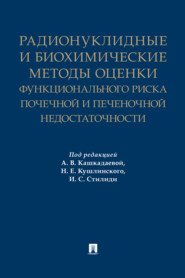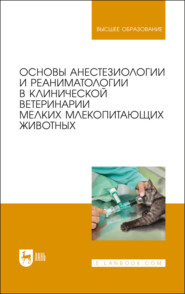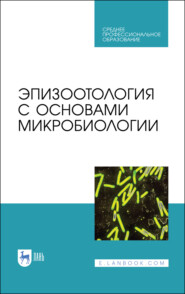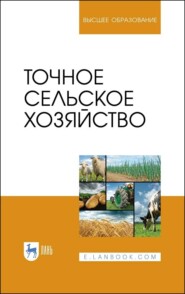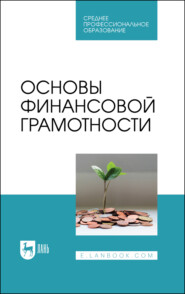По всем вопросам обращайтесь на: info@litportal.ru
(©) 2003-2024.
✖
Актуальные проблемы Европы №3 / 2013
Настройки чтения
Размер шрифта
Высота строк
Поля
Even during the Taliban era, the European Union was still present in the country. Based in Peshawar at that time, ECHO worked to provide an emergency aid to the Afghan people. During these troubled times, when the Taliban government was issuing directives to force NGOs out of the country, ECHO did everything in its power to continue to deliver aid to those who most needed it in Afghanistan. The focus was on demining, safe drinking water, sanitation, safe housing for returning displaced people and relief for women and other vulnerable groups. In 2002, the European Union launched its first representation in Afghanistan. Since then, the EU has been one of the major actors in Afghanistan and one of its biggest donors.
Afghanistan continues to struggle from the impact of conflict. The enthusiasm triggered by the fall of the Taliban in 2001 started to turn to disillusionment as, from 2005 onwards, the state struggled to maintain security and control over its territory and failed to deliver on the aspirations of citizens for a prosperous and peaceful Afghanistan. Despite this, substantial improvements have been achieved in terms of access to basic health services, education and agriculture.
The EU has always considered assistance to Afghanistan and the region as a priority. Many Member States have participated, since January 2006, in the NATO International Security Assistance Force (ISAF) and all are present in the country either through their embassies or through the EU Delegation.
The European Union and its Member States are committed to combating the threat from international terrorism and increasing the security of European citizens while significantly ensuring that Afghans are able to have a normal life. In this respect for the EU the overall mission is to support the development of an effective Afghan State capable of fulfilling the political, social and economic rights of its people and to encourage the peaceful expression of conflicting views without resorting to violence. It is also of the utmost importance for the European Union to help build the foundations of a sustainable network of public institutions that can guarantee the gains witnessed during the last eleven years, particularly in the area of women rights, and help shape sustainable economic development for the country.
The EU and Member States have been major donors in supporting the development of a stable and prosperous Afghanistan and currently spend more than €1 billion a year in development aid in the country. Their commitment is for the long term reflected in the fact that they have agreed to maintain their support for Afghanistan at current levels for the years to come. In a country where an estimated 36 percent of Afghans still live below the poverty line, and the population continues to experience high rates of malnutrition and food insecurity, the EU is also providing much needed humanitarian aid and contributing to the elimination of poverty.
The Lisbon Treaty, ratified by the 27 EU Member States in 2009, was a major achievement. This treaty includes key changes aimed at increasing the consistency and coherence of the EU's external actions. It provided the EU with its own Diplomatic Service – The EU External Action Service (EEAS), currently led by High Representative for Foreign and Security Policy, Baroness Catherine Ashton. The Lisbon Treaty has considerably changed the EU footprint in Afghanistan as it has done all around the world. It has strengthened the role of the EU in international relations and provided it with a single voice. For example, instead of two different representatives, the Head of the European Union delegation (HoD) and the EU Special Representative (EUSR) is now one and the same person. I therefore represent, negotiate and coordinate on behalf of the EU and work
closely with the United Nations Special Representative of the Secretary-General and the NATO Senior Civilian Representative as well as with the Afghan authorities and the International Community representatives in Kabul. Close coordination with all Member States also allows the EU in Afghanistan to be particularly coherent and efficient. I also work closely with my colleagues from Russia, India, China, Turkey, Australia and Japan and others who are involved in support and reconstruction of Afghanistan.
Why are the EU and MS in Afghanistan?
The European Union is committed for the long haul. In November 2011, the EU and Member States' Foreign Ministers agreed that they would seek to continue their support for Afghanistan at least at current levels well into the «decade of transformation», from 2014 to 2024.
That commitment will be embodied in the Cooperation Agreement on Partnership and Development (CAPD) between Afghanistan and the EU, which will soon be finalised. The agreement will provide the framework for our political and economic cooperation over the next decade, including in the areas of development, trade, governance, justice and human rights and women's rights. The strategic objectives pursued by the EU in its partnership with Afghanistan are to strengthen dialogue and cooperation with a view to supporting peace and security in Afghanistan and the region. This is of the upmost importance for Afghanistan, its neighbours and for the rest of the world. Among other priorities, the EU promotes sustainable development, a stable and democratic political environment and the integration of Afghanistan into the world economy. A particular emphasis is also made on establishing a regular dialogue on political issues, including the promotion of human rights and gender equality and the involvement of civil society.
The EU will pursue these strategic objectives through a variety of instruments, including the Development Cooperation Instrument and the Instrument for Stability. However, in a highly aid-dependent environment, characterised by sometimes uncoordinated interventions, often outside of government structures, aid delivery poses significant challenges. As donor funding levels decline, sustainable private sector investment will need to increase to improve stability through jobs and increased revenue. In order to maximise the impact of aid in this highly complex environment, the government has put forward an Aid Management Policy. The main objectives of this policy are to improve the effectiveness of development cooperation through greater government ownership and leadership and to strengthen economic management by increasing flows of development assistance through the budget. So-called 'Afghanization' will be key to an increased sovereignty and responsibility over the country's stakes.
A close collaboration with Afghan authorities
Following the July 2010 Kabul Conference, the government of Afghanistan decided to enhance the coherence of its policy action and create instruments to further facilitate the International Community's alignment with its priorities. As a result, ministries with responsibilities in homogeneous policy areas were clustered and cluster leaders were asked to develop 22 National Priority Programmes (NPPs).
NPPs will serve as instruments for the implementation of the sector development strategies in areas such as governance, basic service delivery, agriculture and rural development and infrastructure. In the run up to the Tokyo conference intense consultations with donors have paved the way for the endorsement of 16 NPPs to date, which should now enter the implementation phase. Two NPPs, of core importance for the EU development assistance portfolio, still require significant work and are expected to be finalised in the course of 2013.
In line with the principles of aid effectiveness, the government asked donors to progressively align funding with national programmes, and use government systems as much as possible, shifting from project to programme mode. The aim is to improve coordination and better target development assistance. The EU is already largely aligned behind national priorities and national programmes and is striving for further alignment, using government systems as much as possible.
The political construct that dominated the Tokyo conference was the Mutual Accountability Framework (TMAF). The TMAF sets out a series of areas in which the government is committed to reform, namely (i) Representational Democracy and Equitable Elections; (ii) Governance, Rule of Law and Human Rights; (iii) Integrity of Public Finance and Commercial Banking; (iv) Government Revenues, Budget Execution and Sub-National Governance; (v) Inclusive and Sustained Growth and Development.
The International Community reconfirmed its support to financially and politically support the aspirations of Afghanistan. However it also made it very clear that these exceptional efforts will need to be mirrored by an ambitious reform plan in the field of governance and development and by a transformation of the political processes.
The EU was in the lead in the negotiation of the TMAF and in particular on the conditionality or rather the mutuality of the commitments but has also been at the forefront in moving the framework from a theoretical construct to implementation. In particular, the EU has enhanced the predictability of funding, taken bold steps to bring support on budget and increase alignment. However, in the spirit of mutual accountability, it also withheld funding of €20 million in aid for the justice sector in November 2012, due to delays of the government of putting forward its reform strategy. If the European Union is deeply committed in supporting Afghanistan, it needs to stress that in the spirit of the Tokyo agreement support will be increasingly conditional of the delivery of the Afghan government on the agreed reform agenda.
Ultimately this is a sign of the how the EU intends to organise its relations with Afghanistan in the long term. The long term partnership is enshrined in the CAPD. However, the exceptional levels of aid to Afghanistan will continue to flow only if the government of Afghanistan delivers on its commitments.
What is the EU trying to achieve?
Greater security for all Afghans
One of the key priorities for Afghans is to have security in their daily lives. The EU and Member States have been among the leading donors to the Afghan National Police (ANP), funding the police salaries, equipment and providing training on the ground to better enable them to perform their jobs. The main objective remains to improve the civilian policing quality in Afghanistan. The EU spent around €140 million between 2011 and 2013 for police salaries and training, to improve ANP institutional framework and links with local communities. The EU also recognises the important links between policing and the justice sector and is supporting Afghanistan's National Justice Programme.
Of course, Afghanistan will still face many challenges after 2014. But the EU believes that the time is now right for Afghans themselves to take the lead responsibility for their own security. The EU and the international community will continue to stay committed in their support to Afghanistan in the future. It is important to remember that transition is not an end to international support or to assistance to Afghanistan, but it is the beginning of a new form of that engagement.
In the forthcoming elections, security will be of the utmost importance. Hence, the EU praises the development of the Afghan National Security Forces, who are gradually taking over the responsibility from international forces. The EU member states are providing important support to the Afghan National Security Forces through bilateral programmes while the EU with its European Union Police Mission in Afghanistan (EUPOL) provides training and develops civilian police capabilities. EUPOL is currently present in twelve provinces and in Kabul. They have experienced great success in their main training programmes. At the Crime Management College, 949 students have already graduated since it opened in April 2012. At the Staff College, 3298 students have so far graduated. The European Unions is, with the United States and Japan, the largest contributor to the Law and Order Trust Fund for Afghanistan (LOTFA), which is paying police salaries. At the Chicago conference the EU pledged to further step up its contribution to the police sector.
In a country like Afghanistan, where aid is sometimes not sufficiently coordinated, the EU aims at improving synergies also in the civilian policing sector. The EU is therefore an active member in the International Police Coordination Board (IPCB) and EUPOL is currently responsible for staffing its secretariat. The IPCB is the primary instrument for coordinating international support to police training and reform of the Ministry of Interior.
In November 2012, EUPOL Head of Mission Karl Ake Rohge and I invited the Ambassadors of Russia, China and India for a meeting on police training at EUPOL. The aim of the meeting was to provide a presentation of EUPOL's contribution to the development of ANP, to explain how the International Community's support is coordinated and to exchange information of respective contributions to police training. The participants presented their involvement in police training and outlined the opportunities and challenges they face.
Specialised training on issues such as criminal investigations, forensic science and leadership training have been identified as elements of the training that is currently being delivered by Russia and India and constitutes the very core of EUPOL's mandate. It was also said that future dialogue between the European Union, Russia, China and India aimed at exchanging information, identifying lessons learned and looking at possible synergies will be important in order to avoid duplication of efforts and ensure the best use of the resources.
Functioning democracy, good governance and Rule of Law
The EU supports Afghanistan at each step on the path to becoming a truly democratic state. Much progress has been made, but we recognise that Afghanistan needs to build on what has been achieved so far, deepening democratic culture across the country, increasing accountability to the Afghan people and strengthening its institutions.
The EU is supportive of inclusive and transparent elections with a legitimate outcome. This, in fact, is an enabling factor for peace and reconciliation in Afghanistan. Elections are a critical sign of the health of a democracy and the European Union is working with the government and other international partners to achieve credible and transparent Presidential elections in 2014 and Parliamentary elections in 2015. The EU provides constant political and technical support to the relevant Afghan authorities, supported during the actual elections by robust election assessment and observation missions. The EU is supporting the strengthening of the Independent Electoral Commission (IEC) as a respected, independent, credible and transparent institution.
The EU believes that the development of a democratic parliamentary party system offers the best representative political model to facilitate debate and ensure the accountability of executive power to the people, including those living in remote rural areas. Forty percent of the EU budget is dedicated to supporting Governance and Rule of Law improvements in Afghanistan. In addition to policing and elections, the EU supports reforms in the public administration, to build better institutions able to deliver high quality services for the people of Afghanistan.
Human rights, in particular for women, children and minorities
Despite all the efforts of the past decade, human rights violations remain an ever present reality for many Afghans. This is most pronounced among the country's most vulnerable, in particular women.
Because the EU is committed to universal human rights as one of our fundamental values, which is a guiding principle of our external relations, it is actively promoting human rights, fundamental freedoms and democracy at all levels in Afghanistan, with a focus on supporting human rights defenders, improving women's rights, promoting freedom of expression, freedom of religion, and the rights of children. The EU is especially committed to promoting and protecting women’s rights. It is assisting the government and civil society to act against violence against women, challenge early and forced marriages, and provide safe shelter for those in need.
Moreover, it is still of the utmost importance to increase public awareness on the importance of respecting people's human rights. It is essential that people are aware that the lack of justice, education and prevailing negative cultural practices have a direct negative effect on the realisation of human rights, especially for women and girls. Increased public awareness can also help to push the government to comply with its national and international human rights obligations. The EU itself therefore encourages the government to ensure proper and faster implementation of all key international human rights treaties ratified by Afghanistan.
The EU recognises the key role of civil society in promoting human rights, gender and democracy, and in consolidating political participation and representation. For example, the EU funded Family Guidance Centres and shelters provide relief to victims of violence and abuse, including crimes such as rape, human trafficking, underage and forced marriage, exchange of women and girls to settle disputes (known as baad), and those threatened by honour killings. The centres help women with violent husbands, support women and girls facing prison sentences fleeing abusive situations, and assist girls as young as nine who have been sold as brides to men of all ages.
Another example is the EU's support in protecting and defending the rights of children at risk, particularly street and working children. Decades of conflict have led to widespread displacement throughout the country. The high number of returning refugees, internally displaced people and labour flows from rural Afghanistan has also led to the setting up of homes in informal, unplanned settlements on the outskirts of cities. High levels of poverty within these urban settlements force many children onto the streets to help support their family. Educating children is the first step towards reintegrating them into society thus the goal of this project has been to give them a stronger voice, through vocational training and attending state-run schools. The EU's goal is therefore to provide vulnerable children with a basic education and to ensure continuation of education after the attendance of the EU funded centres.
On human rights, the EU realises that it is necessary to take a long term approach, recognising the long lasting significance of apparently only small improvements.
Better health and livelihoods for all Afghans
In 2001, Afghanistan's health indicators were the worst in the world. The Afghan government, supported by donors, in particular USAID, the World Bank and the European Union, has overseen real progress indicating that Afghans are living longer, more women have access to medical care during pregnancy and childbirth and more children survive to reach their fifth birthday.
For example, access to primary health care services has increased from less than 10 percent in 2002 to around 65 percent now. The infant mortality rate has decreased from 257/1000 live births in 2000 to 97/1000 live births in 2010, according to a 2010 nation wide survey. According to the same survey, the maternal mortality rate decreased from 1600/100 000 in 2008–2009 to 372/100 000 two years later. Of course, this is still unacceptably high and the EU will continue to work with the Afghan government to improve the health of all Afghans.
The considerable progress in the health sector is largely due to the implementation of a government-led Basic Package of Health Services (BPHS) and an Essential Package of Hospital Services (EPHS) implemented by NGOs and funded by USAID, the World Bank and the EU.
Since 2001, the EU has committed a total of € 216 million in support of the health sector (including health policy & administration management, infectious disease control and basic health care). By funding non-state actors for the delivery of BPHS and EPHS, the EU supports the provision of basic health cares services to more than five million Afghans in ten provinces, even in some of the most insecure and underserved areas of the country.
The BPHS has been critical in ensuring that all stakeholders focus on the common strategy established by the Ministry of Public Health (MoPH). This approach has made BPHS shorthand for a series of policies and strategies focused on the delivery of high impact primary health care, with adequate resources and efforts dedicated to improving service coverage to rural populations, equity in access to services and maintaining the focus on the poor, carefully monitored and evaluated.
EU institutional support to MoPH at central and provincial levels focuses on better linking service delivery and sector governance as well as on improving sector stewardship, as essential milestones towards a sector-wide approach to health. Pivotal governance areas (policy, planning, health care financing, human resources management, procurement and financial management, pharmaceutical affairs) have gradually become more prominent in EU support. Areas linked to health service delivery include streamlining care for disability, mental health and prison health.
In addition, the Provincial Health Directorates (PHDs) have been supported to play a key role in supervising the performance of NGOs' service delivery and provision of technical advice. Progressively, PHDs are expected to assume regulatory functions at the provincial level and be able to work effectively with the for-profit sector.
In 2010, the EC allocated a fresh € 73 million to ensure the continuation of its support to the Afghan Public Health and Nutrition Sector. Institutional support to the Ministry of Public Health continues to produce positive results in terms of the health and nutrition status of the Afghan population.
On 28 January 2013, the European Commission announced the agreement for new EU aid to Afghanistan to support health and agricultural programmes. In this case, €125 million were allocated to provide basic health care and essential hospital services for 14 million people, almost half of the Afghan population, in 21 provinces across the country. European Commissioner for Development, Andris Piebalgs commented: «the Afghan people have suffered tremendously in recent years due to war, instability and overwhelming poverty. With EU development aid we shall help these people to give them hope for a better tomorrow. This new funding will support Afghanistan in its quest to move from 'transition to transformation' and then to a self-sustainable country».
Agriculture and rural development
Seventy per cent of the Afghan population is dependent on agriculture for their livelihoods. But this work is affected by seasonal and chronic unemployment and many Afghans are forced to find work in the illegal economy as a better source of revenue.






